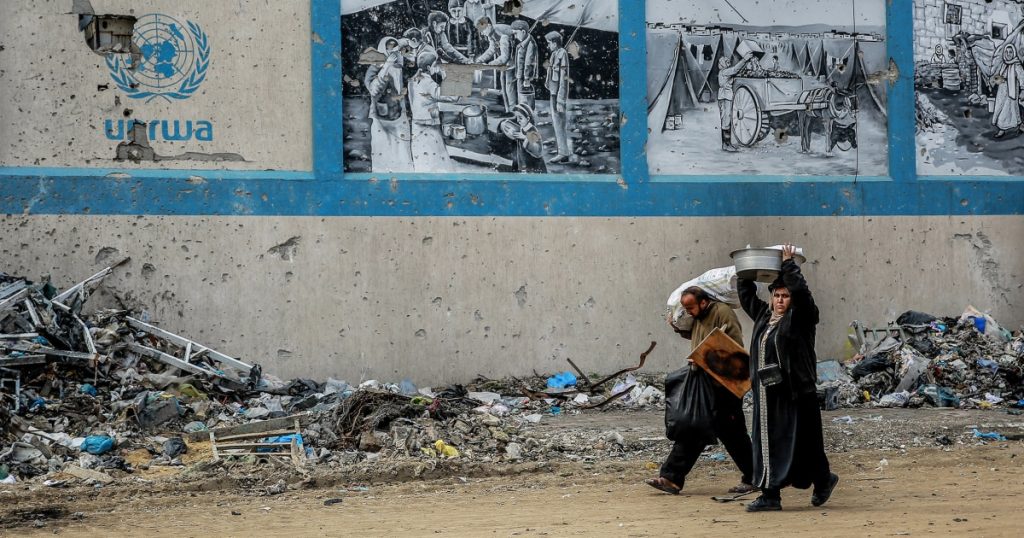Israel’s parliament has voted to ban the operations of the United Nations agency for Palestinian refugees, UNRWA, in Gaza. Prime Minister Benjamin Netanyahu has accused UNRWA employees of being involved in terrorist activities in the region. A recent investigation by the U.N. Office of Internal Oversight Services concluded that some of the allegations against UNRWA employees lacked sufficient evidence, while others may have merit. Netanyahu’s office has stated that UNRWA personnel must be held accountable for their actions. The U.S. State Department has expressed deep concerns about the ban, citing the important role UNRWA plays in providing humanitarian assistance in the region.
UNRWA Commissioner-General Philippe Lazzarini has condemned the Israeli parliament’s decision, calling it a violation of the U.N. charter and a dangerous precedent. He believes that the ban amounts to collective punishment and puts a generation of children at risk. Netanyahu and his allies in Israel have long been critical of UNRWA, claiming that the agency perpetuates a false narrative about Palestinian refugees. However, Lazzarini has emphasized that ending UNRWA’s services will not change the Palestinians’ refugee status, as it is protected by a U.N. resolution until a lasting solution is found.
Foreign ministers from several countries, including France, Germany, Britain, and others, have expressed grave concern about the ban on UNRWA. They believe it is crucial for UNRWA and other U.N. agencies to be able to deliver humanitarian aid effectively to those in need. However, Israeli parliament members who support the ban argue that UNRWA’s work has been counterproductive in the region. Boaz Bismuth, one of the bill’s authors, believes that organizations like UNRWA do not contribute to stability, security, or peace in the Middle East.
The Israeli parliament’s decision to ban UNRWA’s operations in Gaza comes after years of tensions between Israel and the agency, with the conflict escalating in recent times. The U.N. agency was established in 1949 to provide aid and protection to Palestinian refugees in various countries, including the West Bank, Gaza, and others. Despite the criticism from some Israeli officials, UNRWA plays a critical role in providing humanitarian assistance and services to Palestinian refugees. Lazzarini has warned that ending UNRWA’s services will have severe consequences for the most vulnerable populations.
In response to the ban on UNRWA, the agency has announced that it will terminate contracts for nine employees suspected of involvement in a terror attack against Israel. UNRWA has also stated that it stands ready to work with international partners to ensure that humanitarian assistance continues to reach civilians in Gaza without threatening Israel’s security. The U.S. State Department has urged Israel to reconsider the ban, highlighting the importance of UNRWA’s work in the region. The future of humanitarian aid delivery in Gaza remains uncertain as tensions between Israel and UNRWA continue to escalate.


